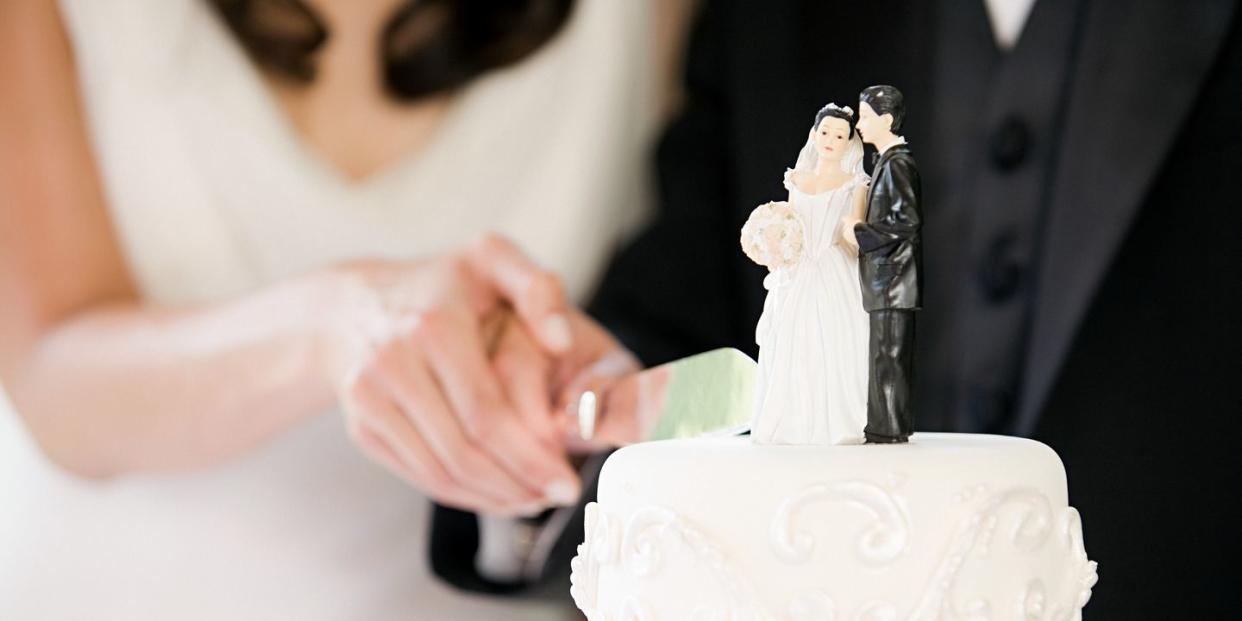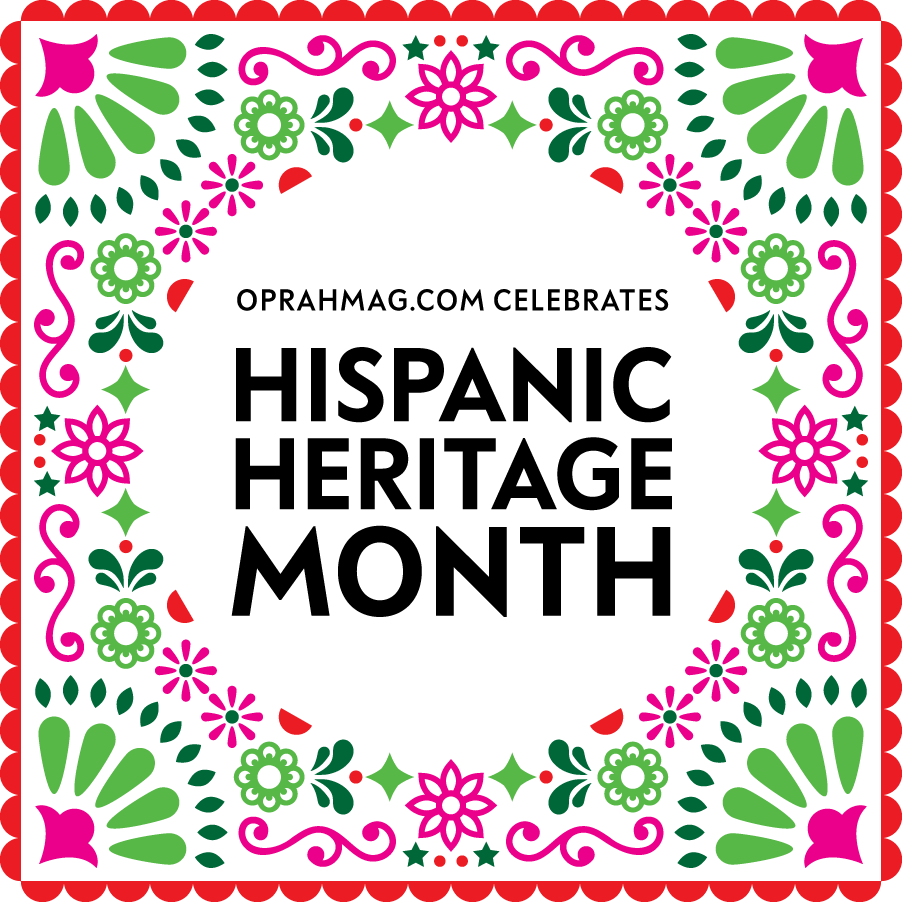My Latino Father Wants Me to Marry a White Man

Growing up in a small Kansas town, I had slim pickings when it came to the dating pool in high school. They were all similar versions of the same trope—white, handsome, and athletic. Diversity was hard to come by. My biggest heartaches were over the boys I’d meet during holidays spent in my father’s hometown of Punta del Este, Uruguay.
My high school sweetheart was a wonderful All-American guy—but we had nothing in common, besides our taste in music. I was always hyper-aware of my otherness when I joined his family for gatherings; I couldn’t avoid standing out in a room full of tall, blonde, blue-eyed people.
A few years later, I moved to New York City and found myself dating minority men with roots everywhere from Haiti to Iran, Puerto Rico, Brazil, Pakistan, and beyond. It was exhilarating to be surrounded by people with culture who understood the nuances of being the child of an immigrant—what it’s like to be the only brown person in a room. I felt understood. I had found my "type" and couldn't envision myself with someone who couldn’t truly understand my Latina identity.

I even went out with a few Uruguayan guys—some who looked white, but none who won the approval of my father. You see, my old man always liked to tease me that he wanted me to end up with a white man—but it never quite felt like an actual joke. His reasoning varied over the years, most commonly ending with the fact that marrying my white, American mother was the best decision he ever made. He was open about the fact that he wanted me to end up with someone educated with whom I could have an easy, safe, stable life.
Sadly, this way of thinking is not uncommon in the Latino community. The phrase "No atrases la raza" translates to “don’t set back the race.” Evelyn Almonte, a Licensed Social Worker and Bilingual Mental Health Clinician, explains that essentially, this means: “Internalized racism is so ingrained in the Latino community that many are not able to identify this way of thinking. For many, there’s still an internalized notion that white is superior.”
Almonte can recall her own Dominican parents pushing her to date anyone more lighter skinned than she was. In high school, one of her fellow Afro-Dominican classmates was forbidden by her dark-skinned mother to date anyone who was not white.
“Latino immigrants often push their children to assimilate so their children can avoid being at a disadvantage,” Almonte says. “Given that we live in a country that is riddled with discrimination and micro-aggressions, many immigrant parents feel they are protecting their children by pushing them to marry white. These are feelings deeply ingrained within the culture—and some don't even know why they perpetuate them.”
My father’s own internalized racism makes him believe I won't have as stable of a life if I end up with a fellow person of color—especially not a Uruguayan. Each time I told him I’d met an Uruguayan (a rare feat given that there are only 3.3 million people living in the country itself), he'd tell me I should stop seeing them immediately because they probably only wanted sex.
For the better part of a decade, I mostly ignored his unsolicited advice and stereotypes about Latinos and men of color. I left the States and started traveling full-time, having my share of fun in countries like Morocco, Mexico, and beyond. I wound up in a relationship with a Spanish guy whose mother is from Honduras. My father was less than pleased, constantly questioning whether or not he was good enough for me. It brings me shame to say it, but the truth is, my father has a deep prejudice against Central Americans.
Things ended with the Spaniard about 2 years ago, while we were living together in Thailand. I was heartbroken and didn’t know what to do with myself, so I flew back to the States to see my father. At the airport, after letting out a slew of sentence-long curses in Spanish, he looked me dead in the eye and told me he hoped that I’d now finally marry a white, American man. At first, I laughed, but then, I burst into laughter—I was horrified.
But after my dad made his wishes crystal clear, something changed. Subconsciously, I began pursuing his wish and started dating only white or white-passing folks. At first, I didn’t realize that I’d only been dating men who looked the exact opposite of my ex-boyfriend. But the truth was I’d see his face whenever I started chatting with a tall, dark, handsome man; I couldn’t escape his memory and wanted nothing more than to move on.
In the last two years I’ve been single—still living in Southeast Asia—I’ve almost exclusively been involved with white, blonde, and blue-eyed men from the States, Australia, the Czech Republic, and the Netherlands. During trips back to Latin America, I found myself only going out with white-passing, non-indigenous Latinos from Mexico, Costa Rica, and Uruguay. Although I found them all handsome, they didn’t understand my passion for racial justice. They’d never experienced discrimination. They couldn’t understand what shaped me into the Latina woman I’ve become.
And more often than not, I’ve often felt fetishized by white men who called me exotic and referred to me first by my looks and curves instead of my passions, career, and ethics. I’ve had white men actually tell me I’m mistress material, but not wife material, but I refuse to be someone’s token Latina. I’m well aware there are plenty of white men out there who don’t fit into these stereotypes—I just haven’t met them yet.
Juriana Hernandez, a Bilingual Licensed Family Therapist, says that children of immigrants constantly try to appease their parents. “Some immigrant children feel a sense of responsibility to make their parents proud and demonstrate that their sacrifices have not been in vain,” she says. “At times, we may experience guilt for having privileges our parents didn’t have or feel the need to be successful or high achieving because we were born in the States.”
My father made an impossible journey on foot across South America in order to escape a dictatorship and start a family in a new country. He worked hard to make sure I had opportunities he never dreamed of in his youth. Didn’t I owe it to him to make him happy?
When I brought this up with my father while writing this article, he laughed, making the usual lewd remarks about Latino men. But in the end, he did finally say that above all else, he just wants me to be happy. As for me? I also hope that happiness will be what brings me together with my future spouse—no matter their ethnicity.
For more stories like this, sign up for our newsletter.

